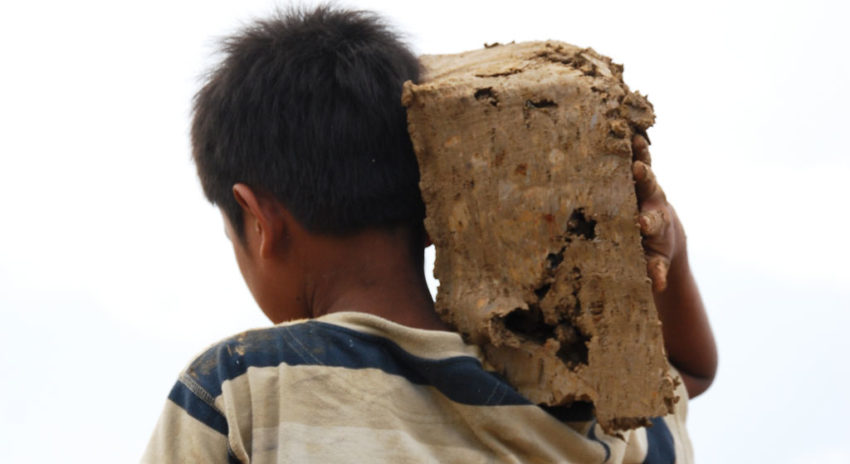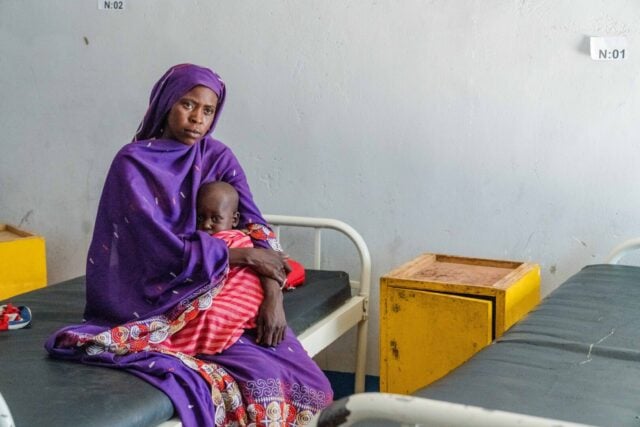The Trafficking Victims Protection Act is a critical piece of human-rights legislation that can help protect, prevent, and prosecute. Learn why!
* * *
Debating the effectiveness of laws is a tradition as old as our nation itself. But I want to share a story that illustrates how one law is accomplishing exactly what it was passed to do.
From 2003 to 2007, the owners of the U.S. company Global Horizons trafficked more than 600 Thai workers to U.S. soil. The company lured the men with promises of high-paying agricultural jobs.
When the men arrived after having paid exorbitant recruitment fees, their passports and immigration papers were taken from them. Instead of receiving high-paying jobs, the men were forced to work on farms in Washington state and Hawaii to pay off the “debt” they were told they incurred.
In 2007, the owners of the company were arrested. The victims were referred to service providers, who handled everything from medical care and legal services to making arrangements for those who wanted to return home. In June 2011, the eight defendants in the Global Horizons case were convicted of their crimes.
The arrest, prosecution, and sentencing of these criminals, as well as the services provided to the victims, would not have been possible without the Trafficking Victims Protection Act (TVPA).
Prevent, protect, prosecute
The Trafficking Victims Protection Act (TVPA) of 2000 is the largest piece of human-rights legislation in U.S. history. It created the first comprehensive federal law to address human trafficking and modern-day slavery, targeting both the domestic and international dimensions of this crime. The law has a three-pronged approach:
- Prevent vulnerability
- Protect survivors
- Prosecute human traffickers
Reauthorizing the Trafficking Victims Protection Act
Because the methods of perpetrators constantly evolve, the law must also evolve. This is why the TVPA must be renewed every few years.
The original legislation from 2000 was reauthorized through the Trafficking Victims Protection Reauthorization Acts (TVPRA) of 2003, 2005, and 2008. Each time the bill was reauthorized, innovations and improvements were added.
The Trafficking Victims Protection and Reauthorization Act of 2011, as introduced by the Senate, makes some improvements that will better assist human trafficking victims, prosecutors, and law-enforcement agencies. Some of the key improvements include:
- Encouraging partnerships between the U.S. government and private entities to ensure that U.S. citizens do not use goods or materials produced using labor from human trafficking victims
- Providing technical assistance to other countries to investigate labor recruitment centers where trafficking victims may be recruited
- Establishing child protection compacts between the United States and other countries to prevent the exploitation and abuse of children
- Strengthening the enforcement of child exploitation laws against U.S. citizens living abroad who participate in such crimes
- Protecting possible witnesses, informants, and threatened family members of trafficking victims
Time for reauthorization
The current TVPRA expires on Sept. 30, 2011. If Congress does not pass an updated bill, all of the tools that brought the owners of Global Horizons to justice will be gone as of Oct. 1.
Over the past decade, we have made significant strides toward identifying human trafficking victims, prosecuting traffickers, and creating partnerships here in the United States and around the globe to combat this crime. Congress needs to act now to ensure that we build on these gains, not let them expire.
Lending your voice to make phone calls to your members of Congress can mean the difference between our country leading the fight against human trafficking, or giving up. Tell your elected officials that the United States needs to lead the fight against modern-day slavery around the world, and here at home.
Call your members of Congress today. Urge them to support the reauthorization of the Trafficking Victims Protection Act so that there is no gap in the fight against human trafficking.



Comments